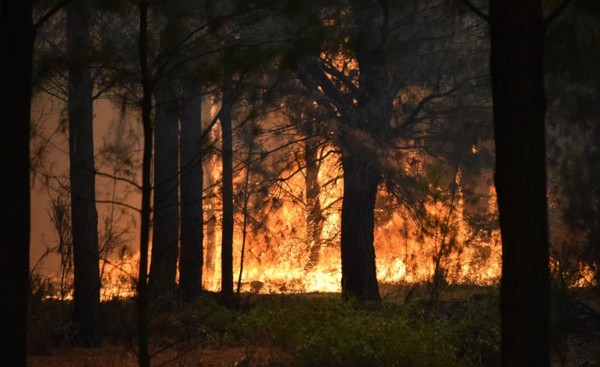"Today we have less burned area, but the number of fires is very similar to last season," warns Esteban Krause, regional director of CONAF in Biobío, who details the equipment and strategic alliances to face this high-risk season.
The Biobío region faces a significant challenge this 2024-2025 summer: preventing and combating wildfires. The regional director of the National Forestry Corporation (CONAF), Esteban Krause, emphasized that coordination between authorities, companies, and the community is key to mitigating the impact of these disasters.
Recent memory recalls the wildfires in Chile over the past years. The devastating episodes in 2017, 2023, and the most recent ones in February 2024 in the Valparaíso region were catastrophic, resulting in fatalities, thousands of hectares affected, and the destruction of homes and productive activities.
"Prevention is ongoing, not just in spring and summer. There is constant work with municipalities, forestry companies, and the community," Krause stated.
He also highlighted that CONAF has implemented programs including the construction of firebreaks and training for residents in rural areas, where the risk is higher.
Wildfires, often intentional, represent a critical problem. According to Krause, "a little over 60% of the fires occurring in the country and the region are intentional." To address this, Carabineros, the PDI, and CONAF have strengthened investigative units to identify and penalize those responsible.
CLIMATE CHANGE WORSENING THE PROBLEM
Climate change has exacerbated conditions for fire spread. "Today in Los Ángeles, fires are occurring in areas where they didn’t before, but where a significant number of families have moved from the city to rural areas," Krause explained.
This urban-to-rural migration has forced CONAF to intensify educational and enforcement efforts, banning practices like agricultural burning.
The Biobío region has a wildfire combat system. At the María Dolores airstrip, on the outskirts of Los Ángeles, aerial teams operate with regional and national response capabilities. Krause detailed, "In the Biobío region, we have 11 aerial teams, 42 brigades, and two groups of trucks with skidders to quickly build firebreaks."
Additionally, collaboration with forestry companies through the Chilean Wood Corporation (Corma) is crucial, especially in urban-rural interface areas, where fires can have devastating consequences.
A SEASON OF LATENT RISK
In Biobío, although the burned area has decreased compared to previous years, the number of fires remains similar. This shows that while preventive measures have yielded results, the challenge persists.
Krause urged the public to report suspicious behavior or violations of regulations. "Reports should be made immediately to Carabineros and CONAF. We have towers, and forestry companies have surveillance cameras," he explained.
THE IMPORTANCE OF FORESTS BEYOND THE FOCUS
Beyond their environmental role, forests hold key social and economic value. "Today, forests are spaces that can be used for recreational activities, such as bike races, Rally Mobil, or motocross," Krause noted. However, he also acknowledged that many small and medium landowners have seen their plantations destroyed, losing assets often intended for their retirement.
The CONAF director urged the public to value these natural resources, essential for the region’s sustainable development. "We must protect forests and seas, generating environmental, productive, and social value," he concluded.
Source:La Tribuna







Comentarios (0)
No hay comentarios aún. ¡Sé el primero en comentar!
Deja un comentario